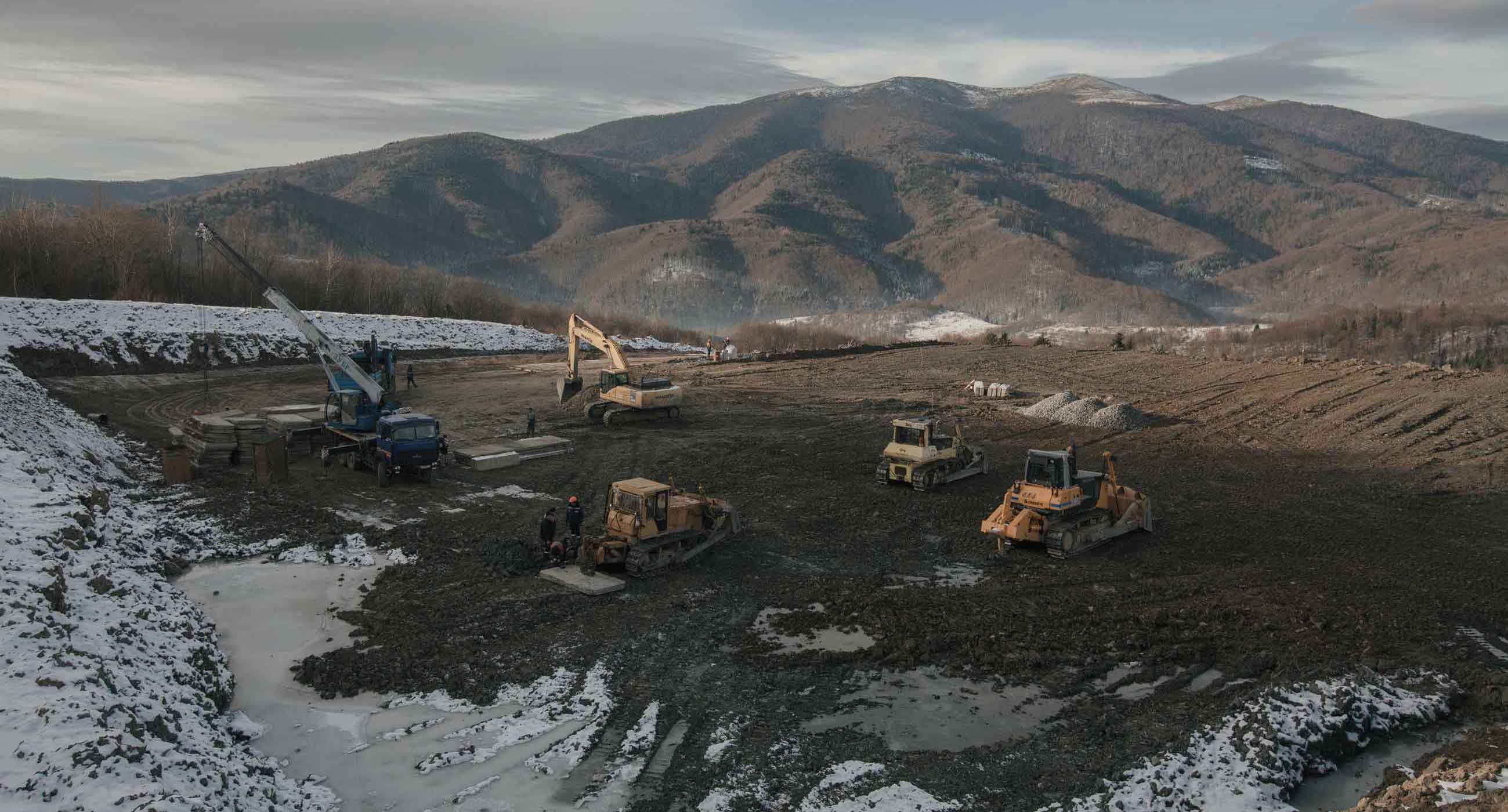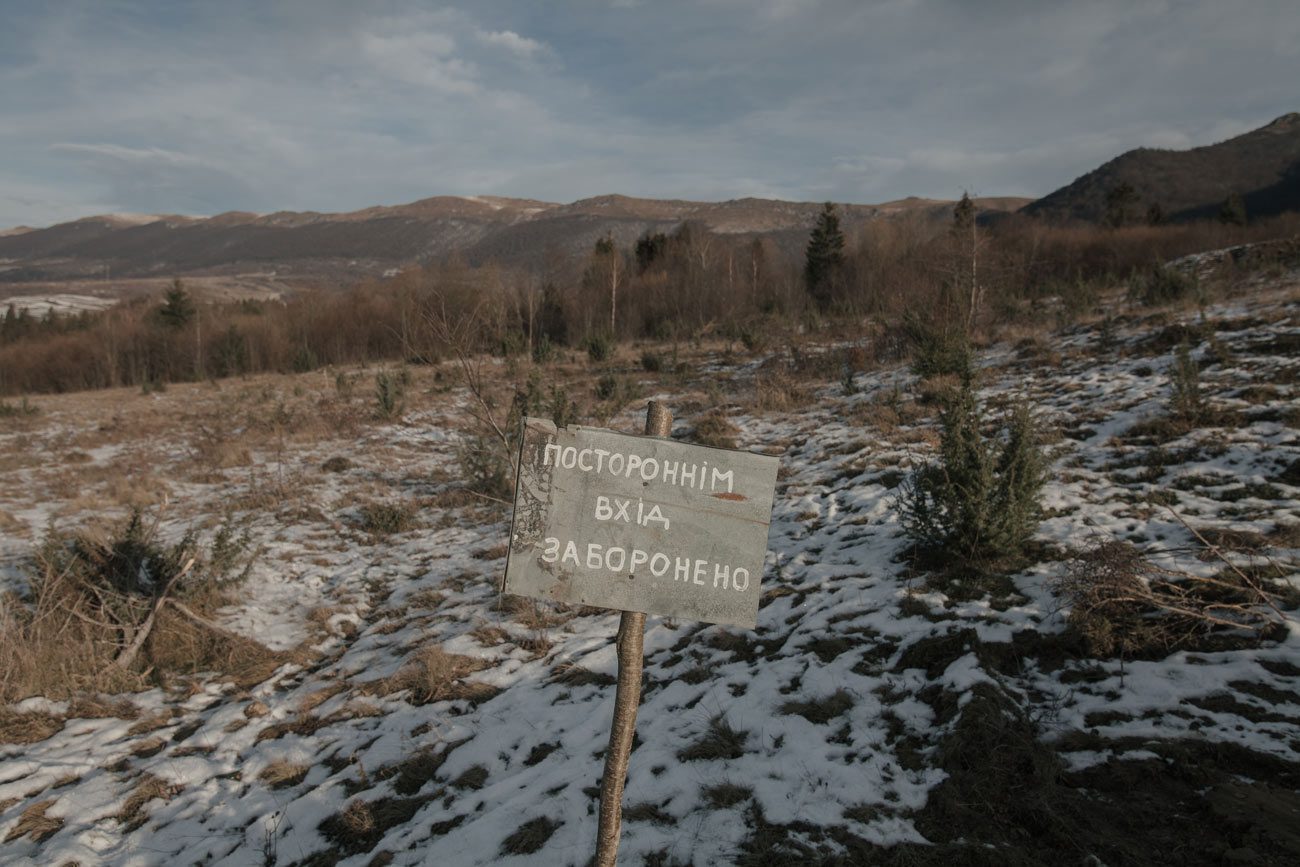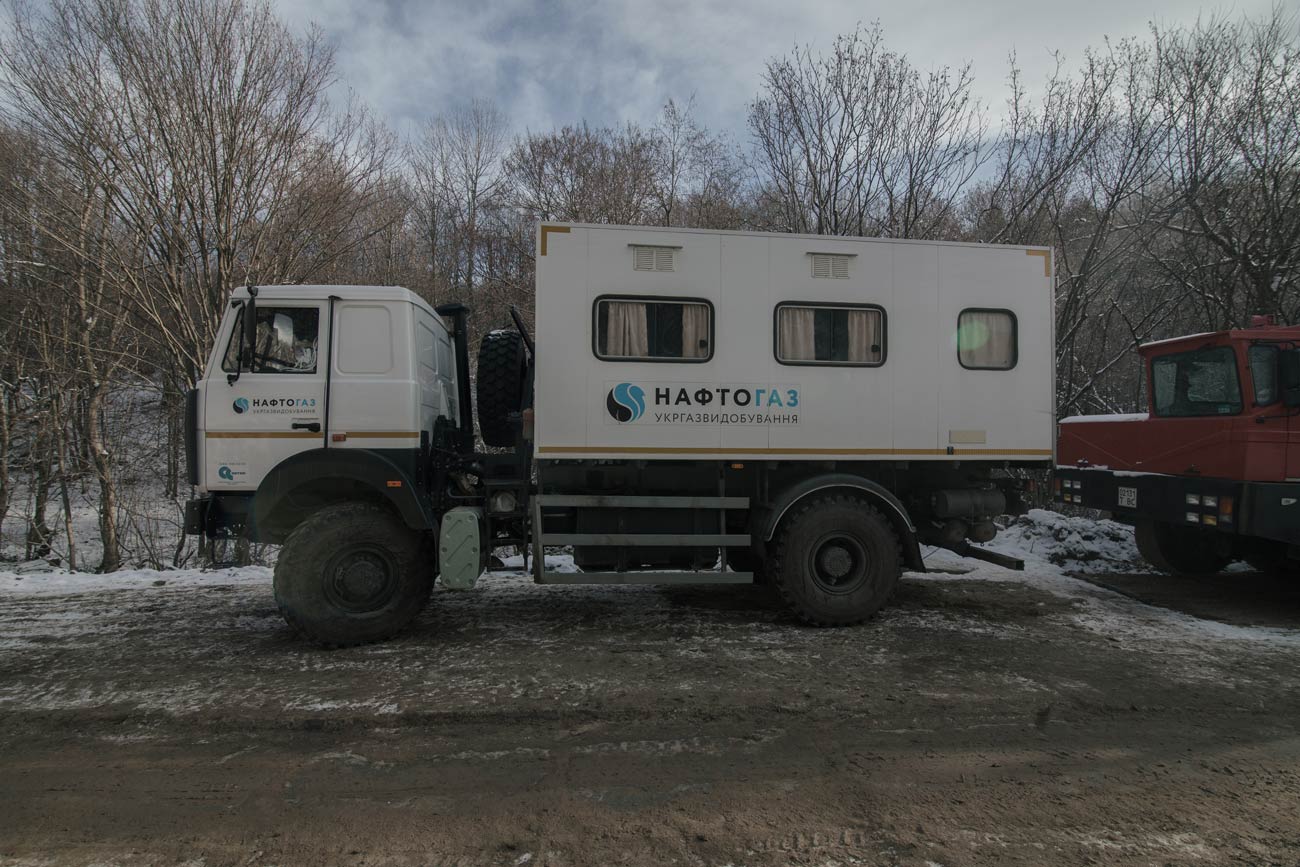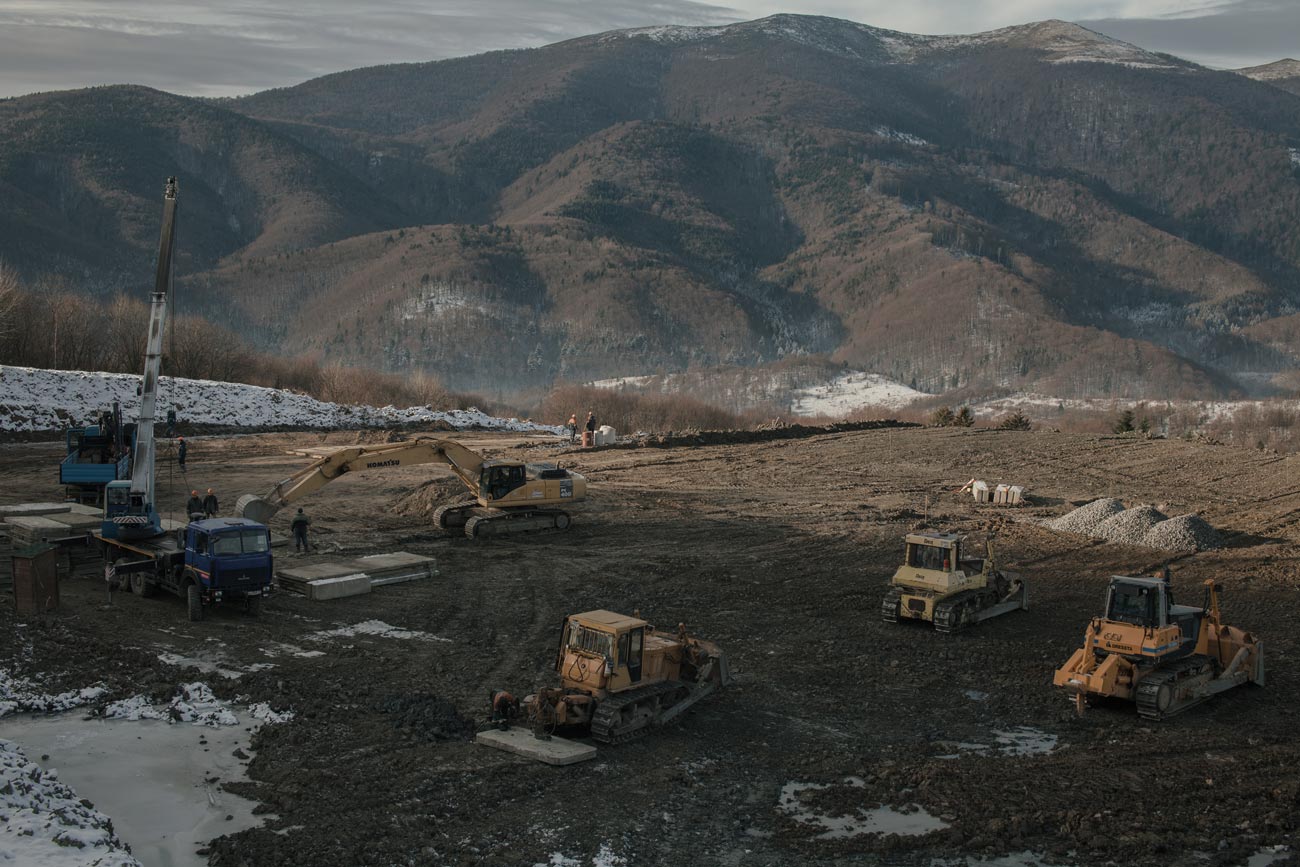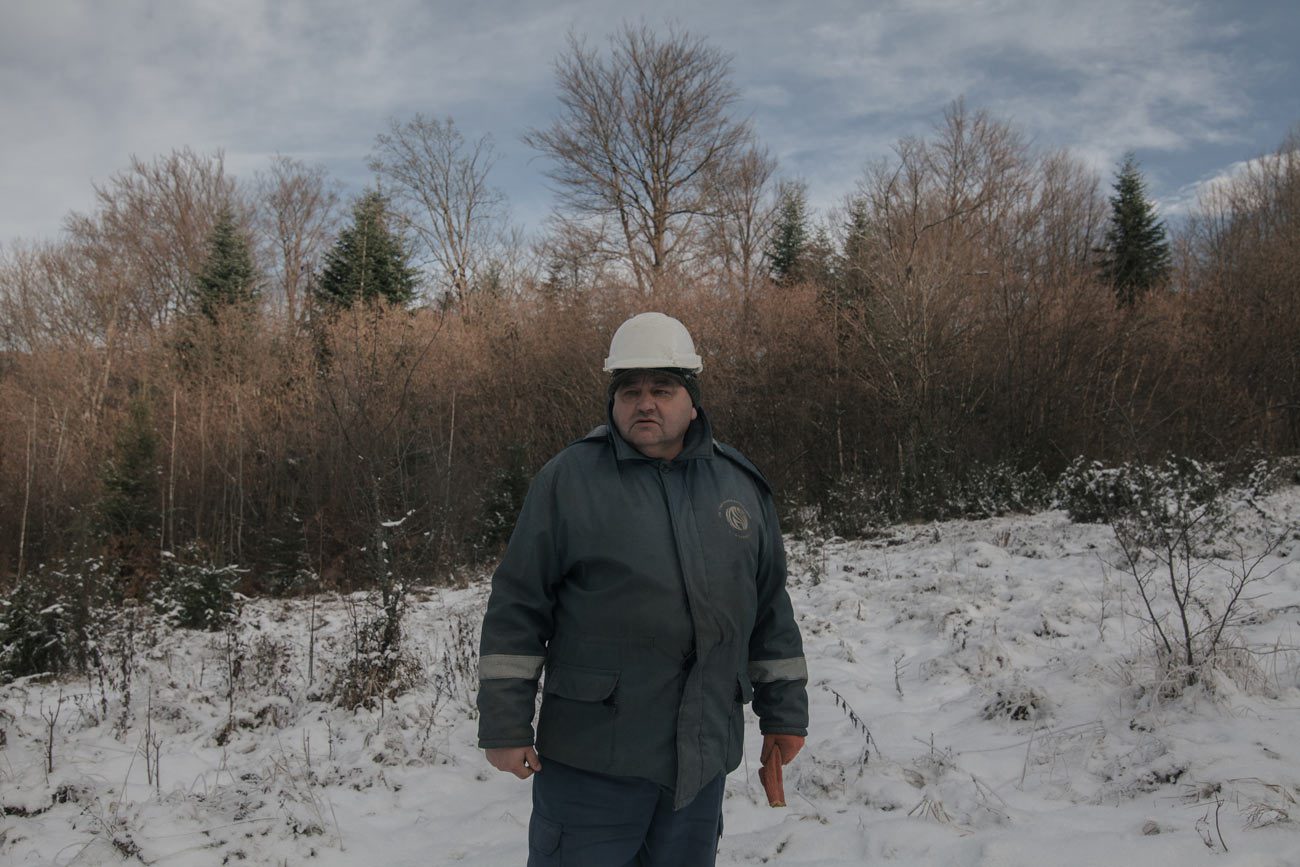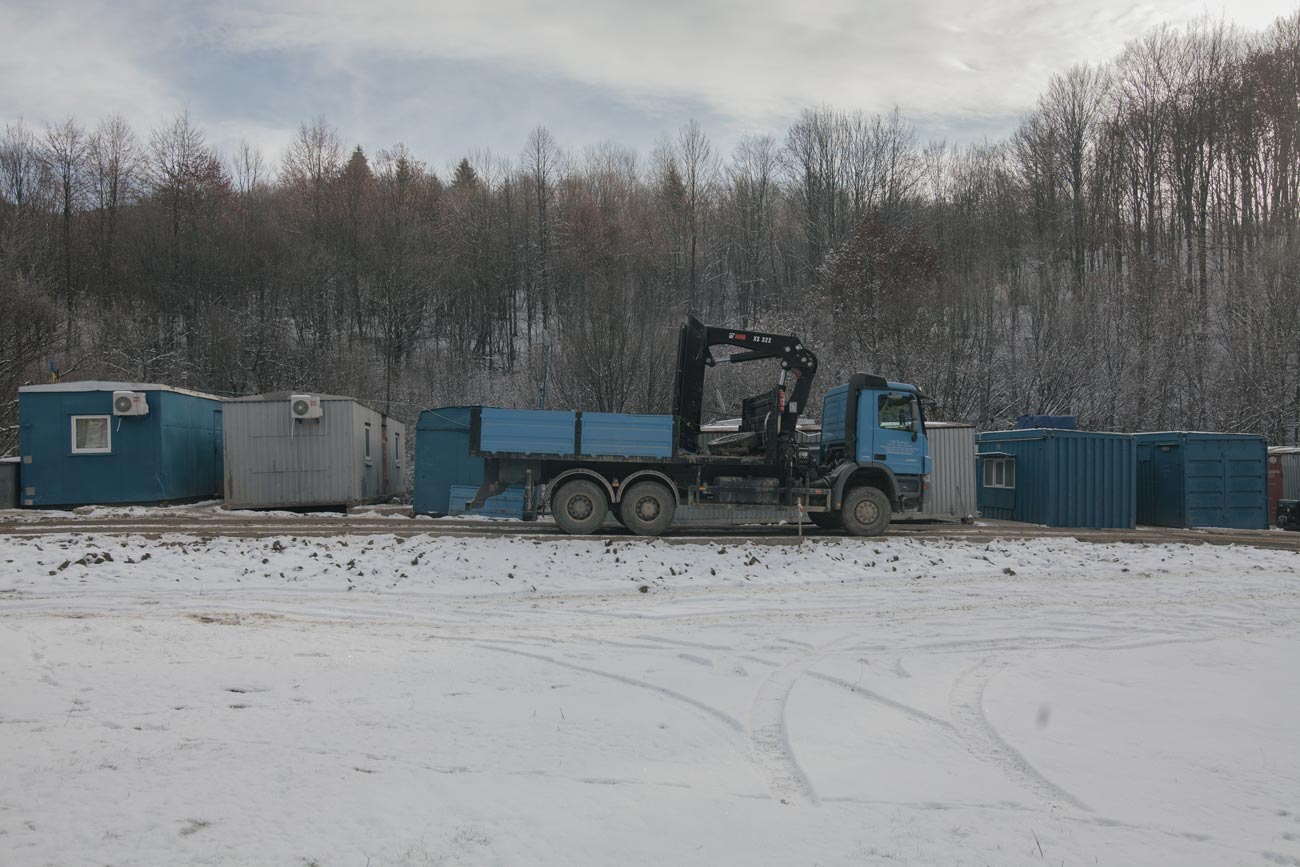Near the village of Bukovets in Transcarpathia, Ukrgazvydobuvannia is preparing to extract gas for the fourth month in a row; a pit has already been dug and a road has been laid for machinery. Locals are protesting because they are convinced that gas production will turn the region into an industrial zone. Zaborona journalist Hanna Belovolchenko explains that although what Ukrgazvydobuvannia is doing is illegal, there is little chance that the locals will win.
No trespassing
In September, vehicles with Ukrgazvydobuvannia logos arrived in the village of Bukovets in Zakarpattia. Back in 2016, they were allowed to study the natural gas fields here. However, before extracting any of that gas, the company had to obtain an official document stating that it was not harmful to the environment. They got it three months after the start of their work, explains Oleksandr Selivonenko, a member of the board of the public organization National Forest System. There is still no full package of permits (most notably, from the architectural and construction commissions). However, the access roads to the site have already been paved and the forest around it has been cut down.
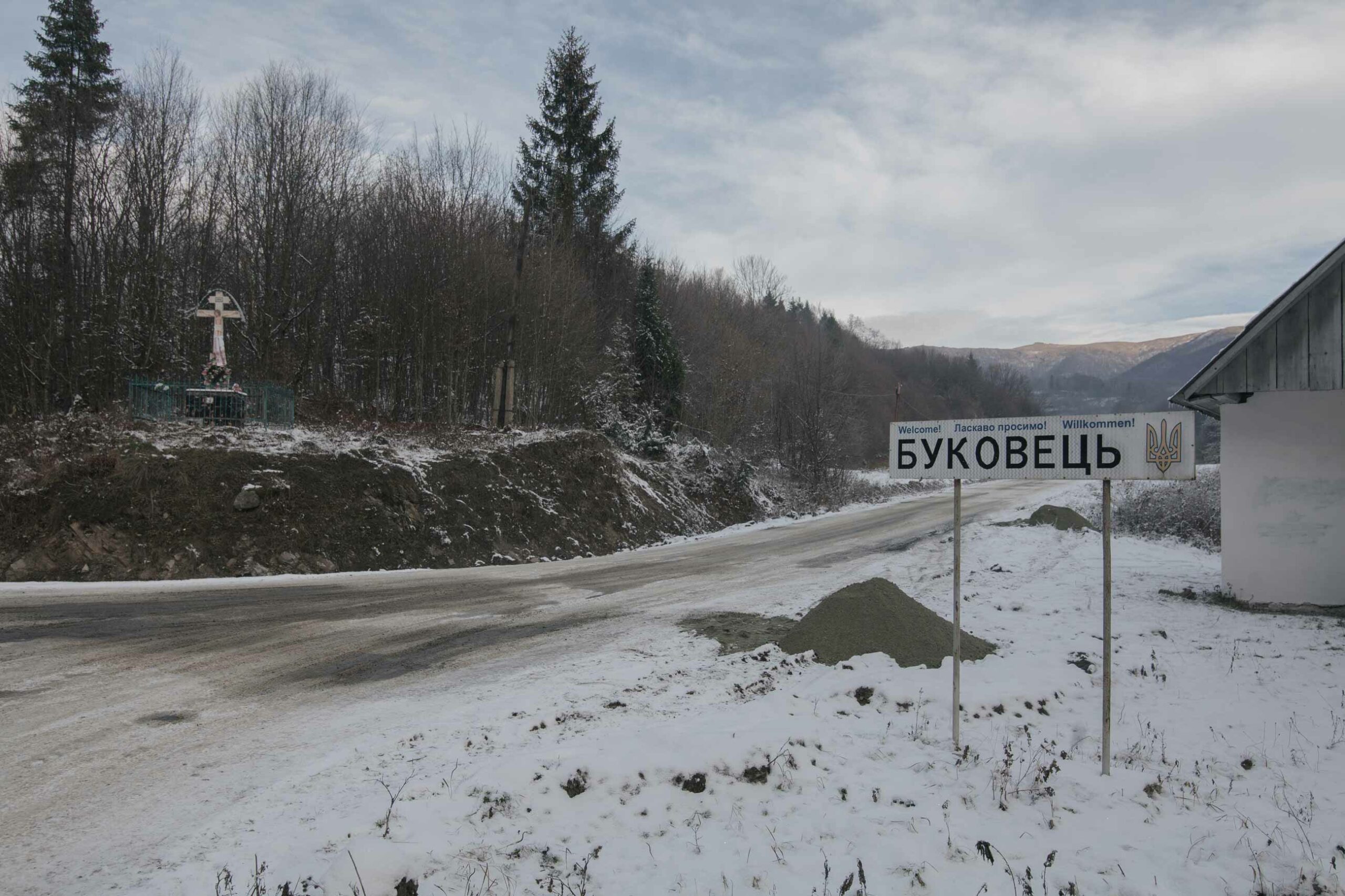
“No trespassing” signs appeared on the site of the mountain pasture where locals used to graze cattle. Two hundred meters from the signs is a pit in which heavy machinery carries concrete slabs and levels them on the bottom.
“You have no right to film or walk here. Heavy machinery is in use,” shouts a man in a helmet. He says, “the nearest hectares are private territory”, and that’s why visitors are not allowed. However, it is impossible to understand what the “nearest hectares” are, because there are no fences and no signs, explaining how far is the private territory.
Ukrgazvydobuvannia leases two plots of land with a total area of less than one hectare. Their equipment, however, works on an area of 5-6 hectares, says Selivonenko; no one has seen any work permits in the rest of the territory.
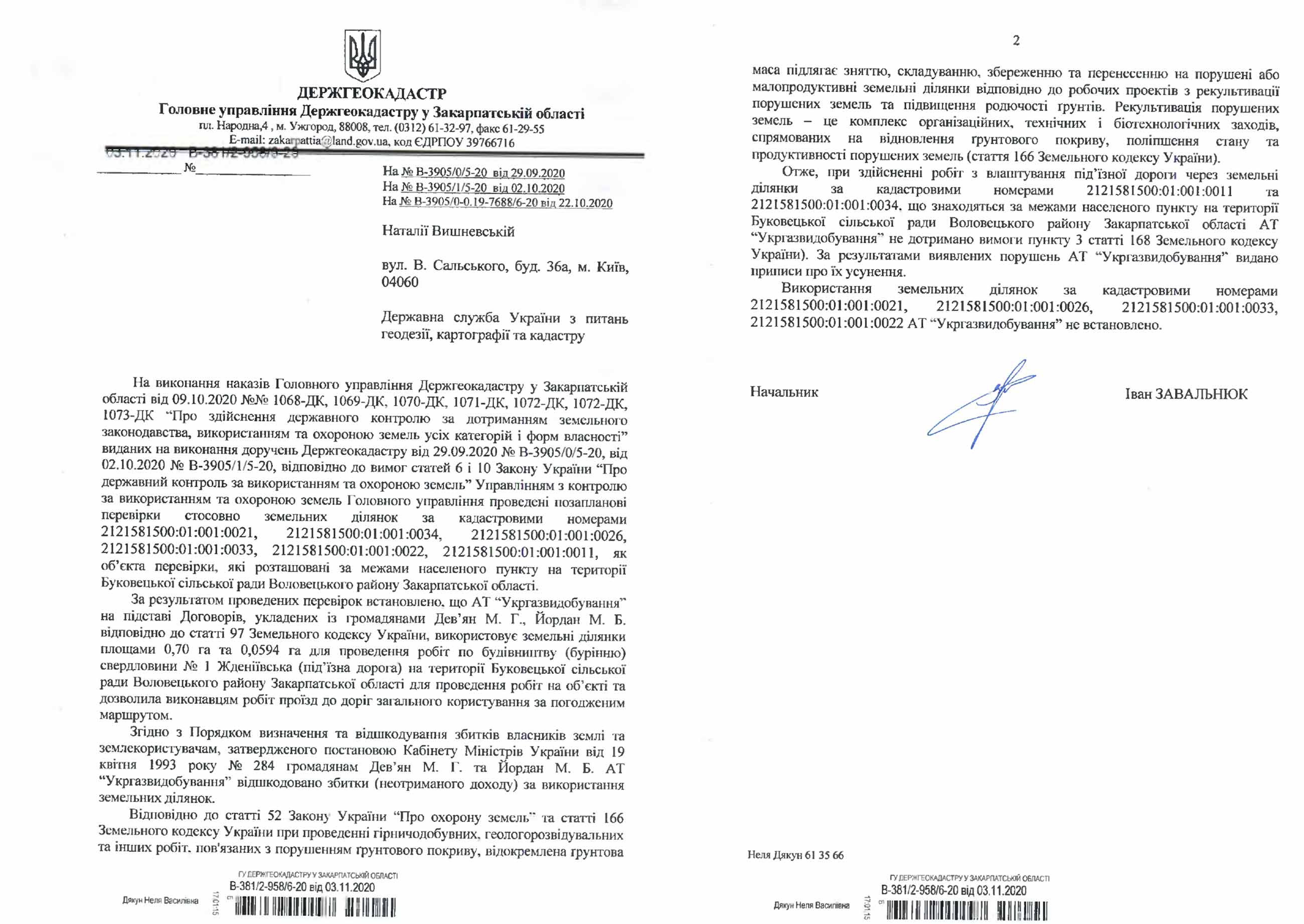
In October, Ukrgazvydobuvannia employees were denied access to representatives of the Zakarpattia Regional State Administration’s Department of Ecology and Natural Resources for unknown reasons. They drew up an “act of non-admission”, which was the only thing they could do. It did not work.
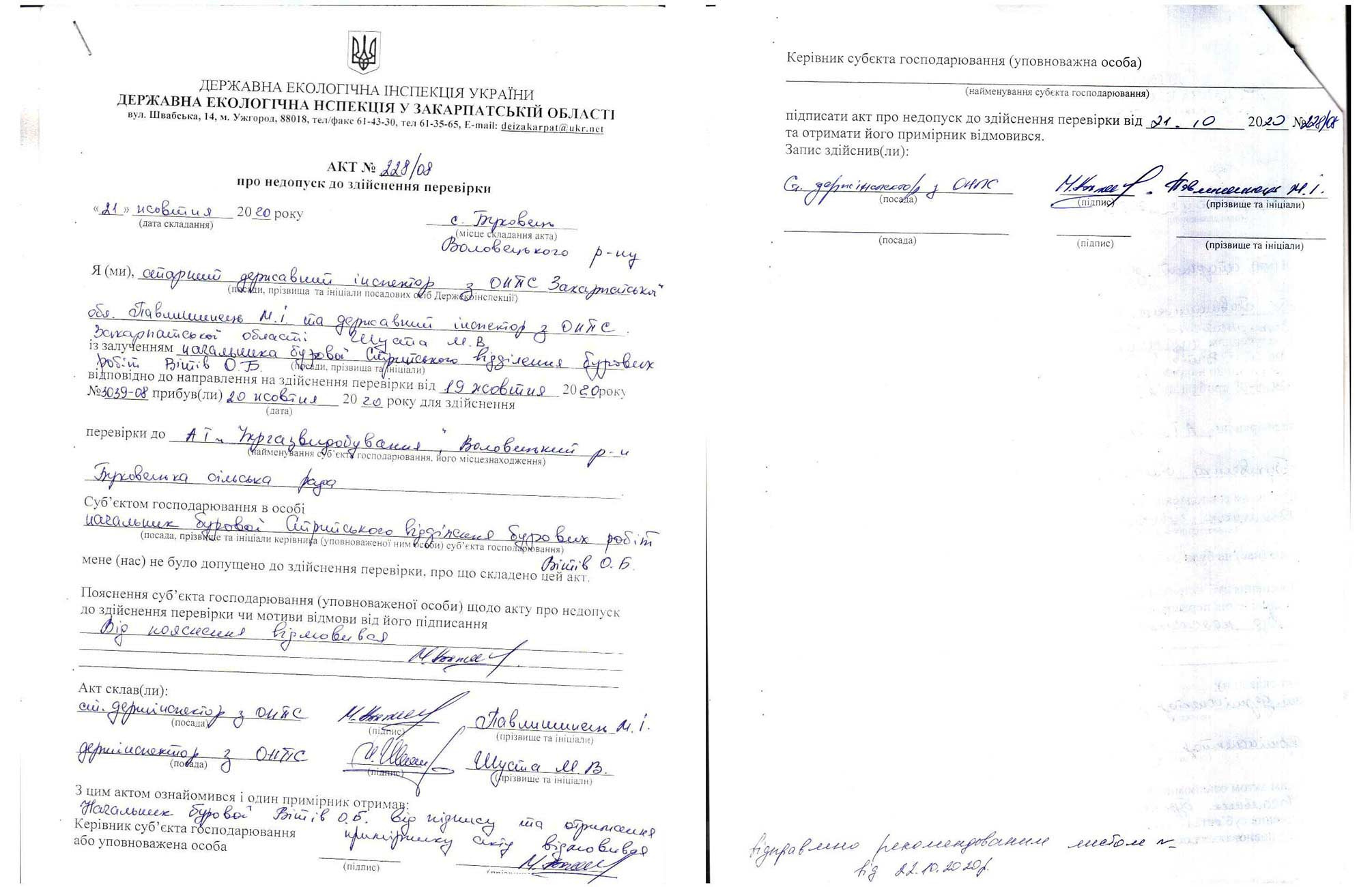
Locals are convinced that the gasmen do not show documents and do not allow specialists to check because they are violating some regulations. Due to gas production, locals fear, the water in the village will either disappear completely or be poisoned, and tourists will be reluctant to come here on vacation, knowing that there is an industrial zone nearby.
Grazing sheep
Bukovets is located between the Pikuy, Acute and Rivne mountains. For tens of kilometers around the village, there is a protected area: a unique stream Osa, reserves Rosishny, Lilac, Pikuy, Golitsa, a natural monument High Stone. On their territory are dozens of unique animals and plants listed in the IUCN Red List of Threatened Species.
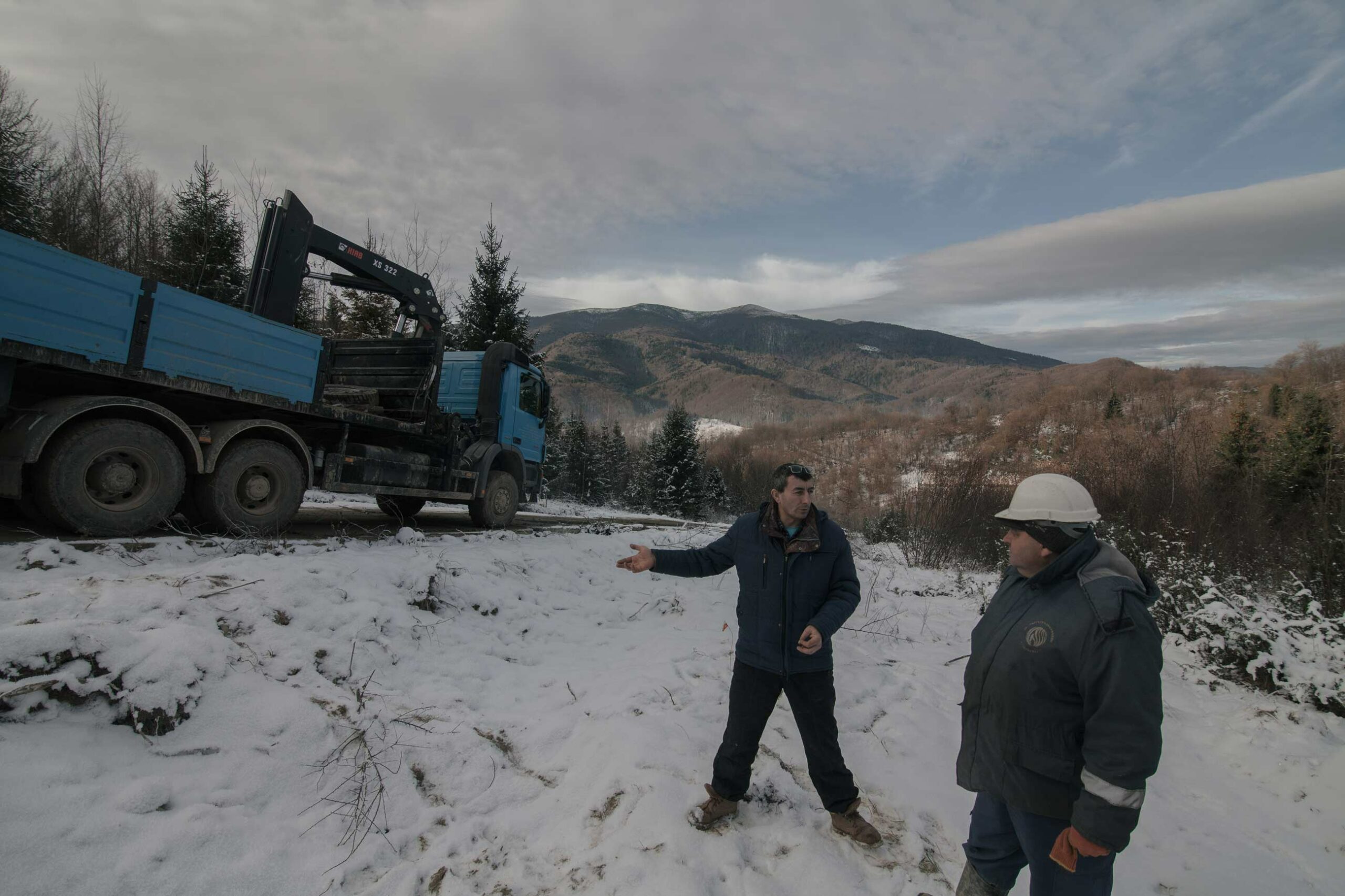
Locals recall that “some researchers with backpacks” showed up in 2016, but no one guessed why. No one was warned about gas production in their village.
“We asked them what they were doing here because they didn’t know about the permits from Gosgeonadr then. They said they were going to take up sheep breeding. Good thing, we thought, harmless, some of the locals can get a job. But it turned out that no one would graze the sheep here. It turned out that we are the sheep,” says Mykhailo Tsap. Born in Bukovka, he is now raising two children with his wife in Bukovets. They are afraid that they will have to leave because of gas production.
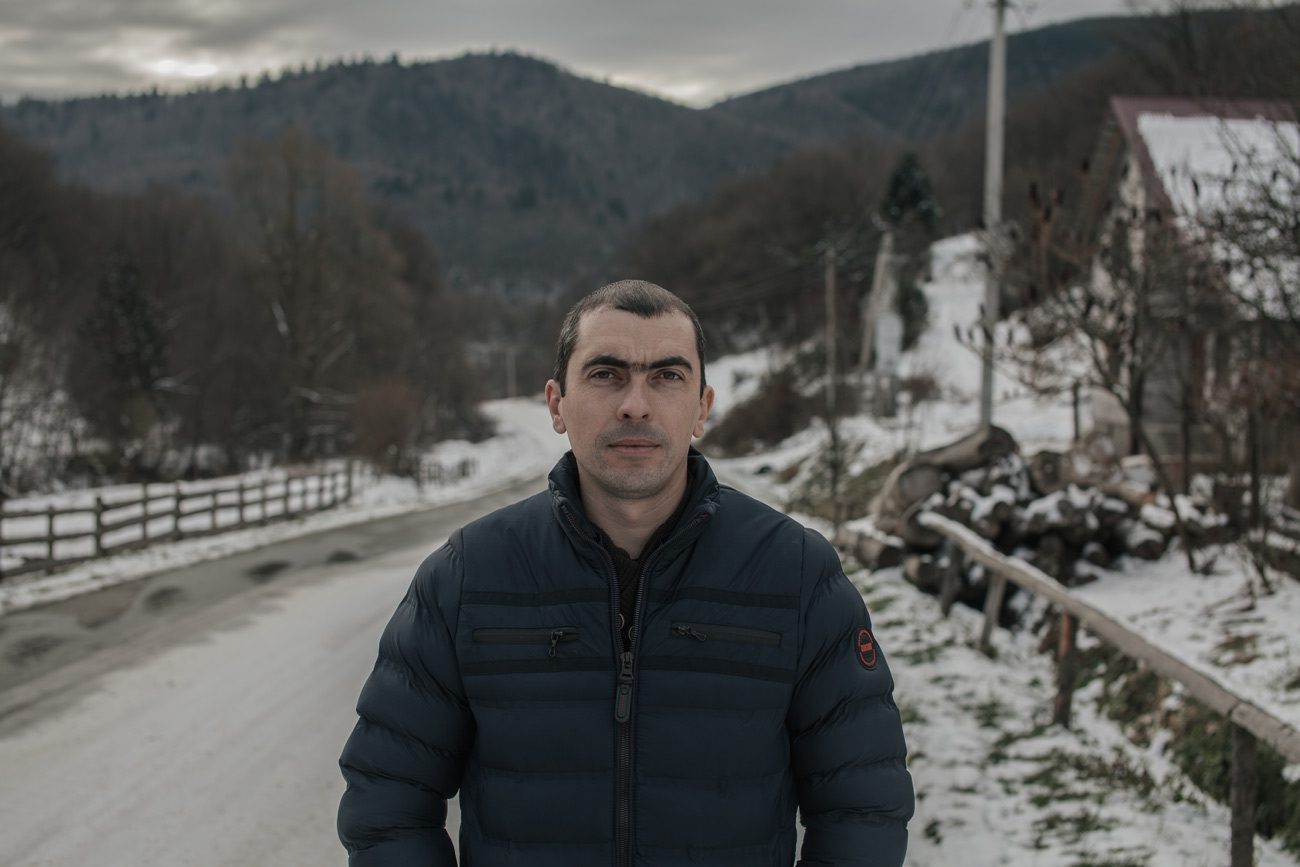
Locals realized that no one was going to raise cattle once drilling rigs came to Bukovets. According to locals, no one provided explanations, work permits were not shown, but the officials assured that there would be no harm to the environment, and that everything was being done according to the law.
Against the law
According to research conducted several years ago, there may be up to 8.9 billion cubic meters of gas in Bukovets. To extract it, you need to drill wells from 4 to 7 kilometers deep.
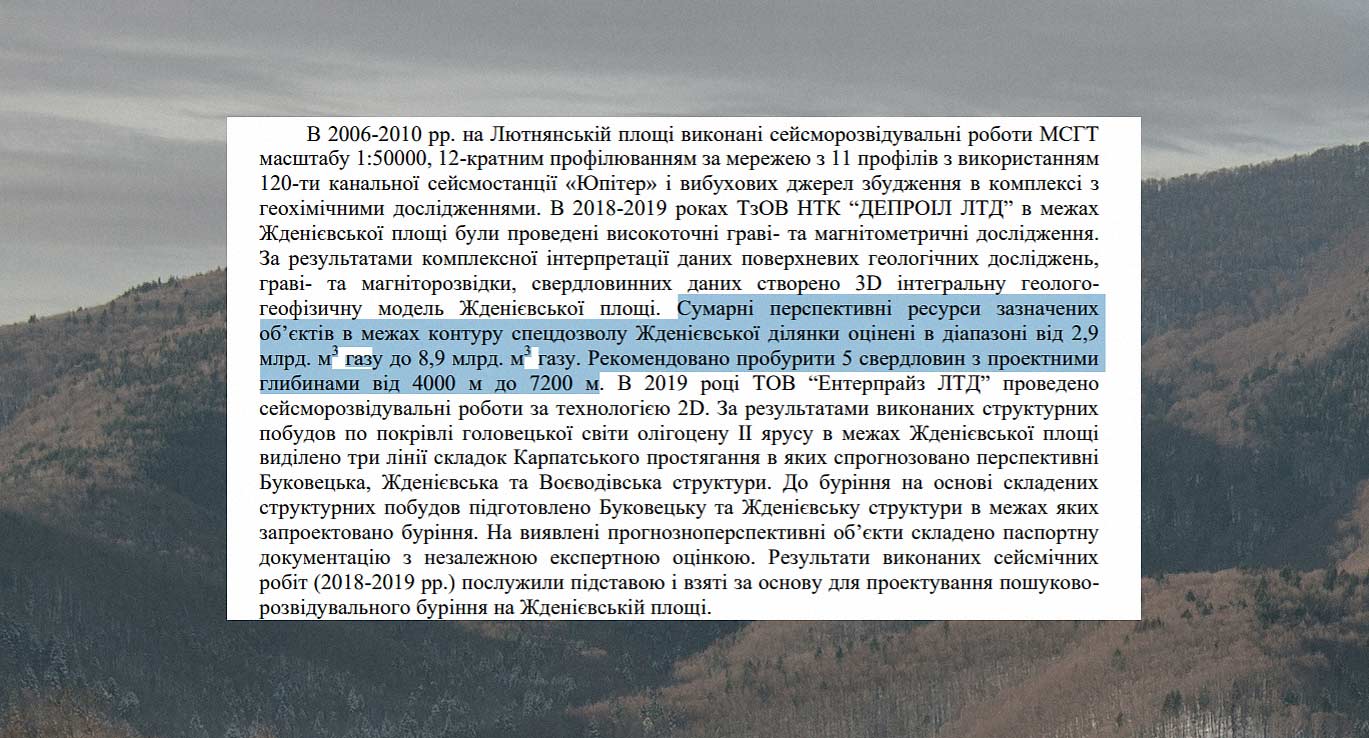
According to the technology, gas is pumped out by special installations, and "sleeves" from the well are introduced under the ground. They are filled with water, sand, and chemicals to destroy the rock under pressure and release gas. The fuel is then easy to get, but pumping back the poisoned water is not. There is a risk that it will seep into the soil and mix with fresh water.
Research from Duke University in the United States has shown that part of the soil in Pennsylvania and New York State has been contaminated with methane due to gas production. Its concentration in drilling sites was 17 times higher than in areas where such work was not carried out.
It is these chemicals that frighten the residents of Bukovets. “In the case of Bukovets, everything was done illegally,” says Selivonenko. “And they didn’t take into account that it is a protected area. The environmental impact assessment [which was belatedly issued by the Department of Ecology and Natural Resources of the Zakarpattia Regional State Administration] states that extraction will not harm the land. But this is not the case: poisoned water and soil will absolutely affect the environment.”
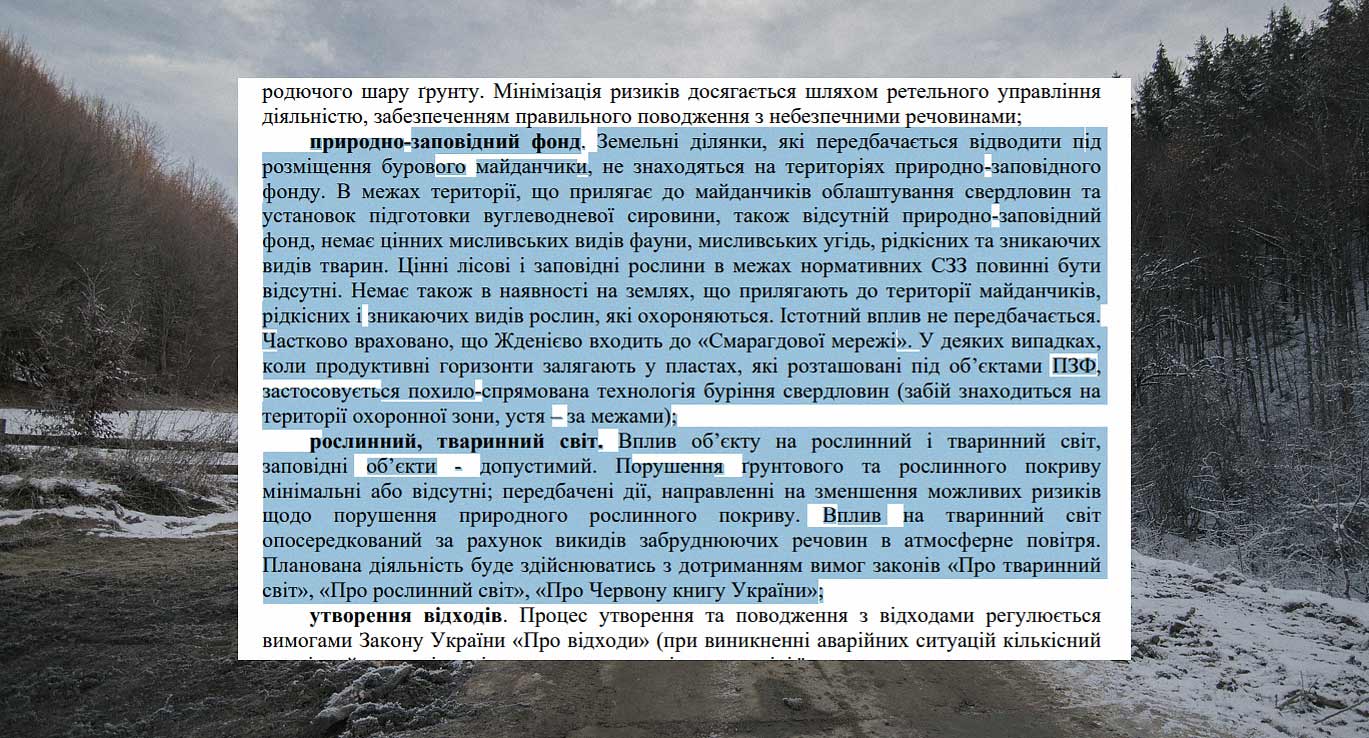
Zaborona sent an official request to Ukrgazvydobuvannya. We asked them on the basis of which permits did the company start work, how much gas it plans to extract, and how much money local budgets will receive. We did not receive any answers.
Welfare or life
Most gas is extracted in the Poltava region: almost 40% of the total volume in Ukraine. However, local residents are not always satisfied with the performance of mining companies. For example, after the start of gas production, water from the wells in the village of Rogozino in the Lviv region disappeared. Residents of the village of Bazylivshchyna in the Poltava region also faced a similar problem. There, people said that after the gas company started their work, the water smelled of gasoline, turned brown and was unfit for drinking.
At the same time, gas-producing villages receive money for this in their budgets. The budget of the Opyshnyanska united territorial community in Poltava region consists of 30% of the rent paid by Solokhiv Gas Industry. In 2019, the budget was replenished by more than 60 million hryvnias. Kindergartens and schools are being repaired with this money, and new boiler houses are being installed.
Rent is paid when gas is already being extracted, but local infrastructure is already beginning to suffer at the stage of preparation. Residents of Bukovets claim that the equipment destroyed the already imperfect roads, so now it is almost impossible to get to the village.
Active residents have already protested outside the Transcarpathian Regional State
Administration. However, this did not work: they only managed to pass an appeal to the National Police with a request to stop the construction of the well. Less and less of the locals are ready to
fight on.
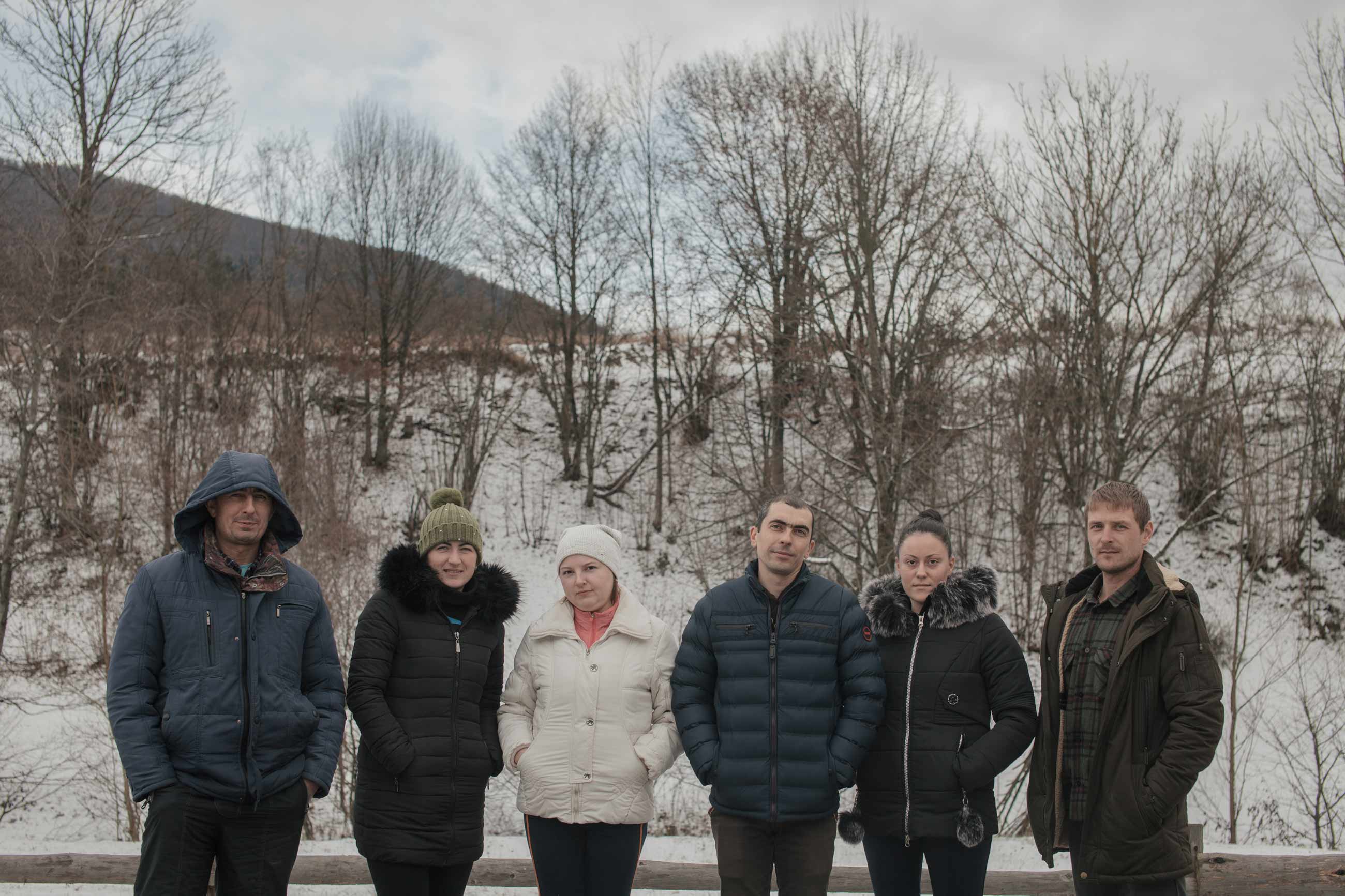
“Some people were intimidated, some people were drunk and persuaded, some people were just tired of it, because it takes time to find out everything. People have their own affairs: cattle, work, children. So some simply resigned and out of the 60 who were active, only a couple dozen remained. But we are still standing, because we want to achieve the truth and at least know why everything is being done illegally. We don’t need an industrial zone in this region,” explains local activist Vasyl Futsur.
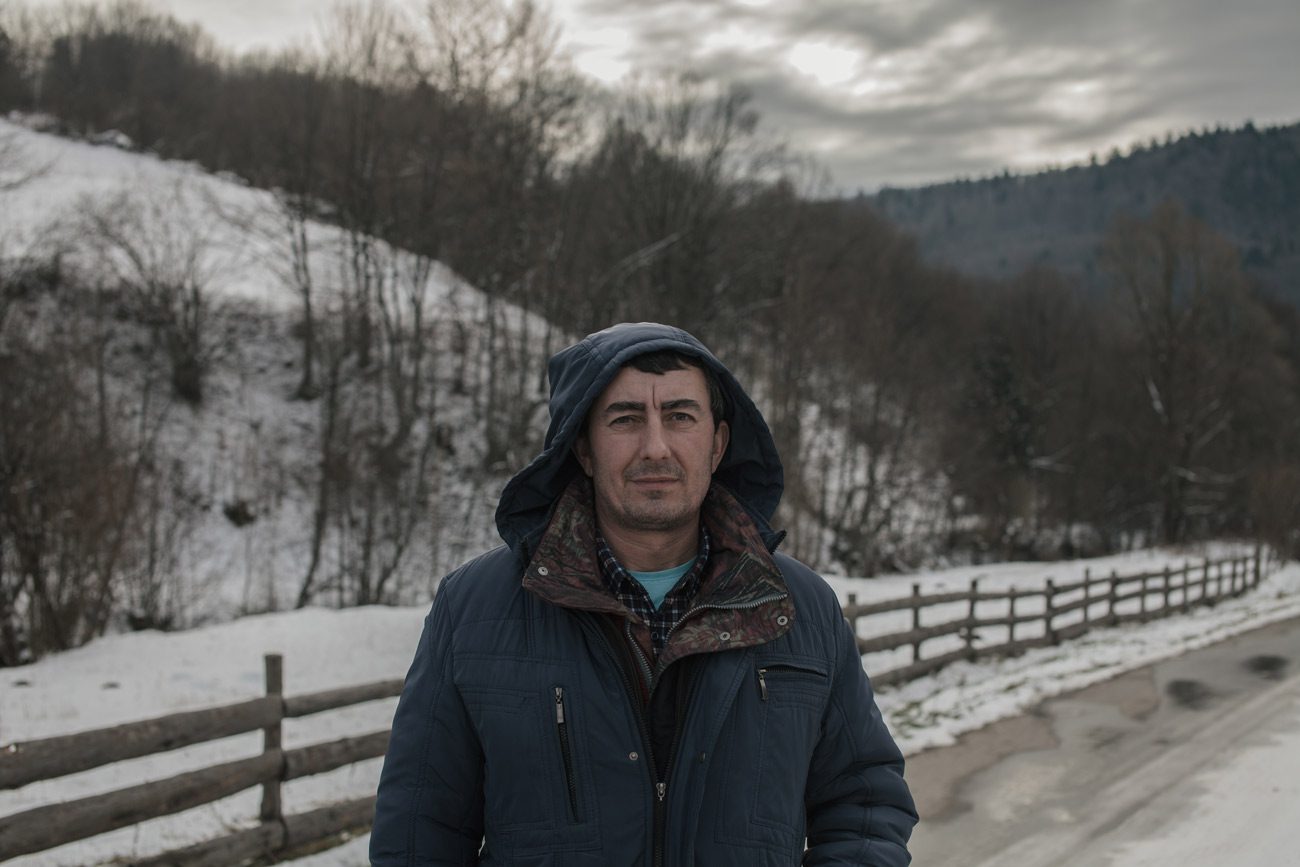
As long as the trials continue, Ukrgazvydobuvannia will simply start extracting gas, according to lawyer Natalia Gnes. It can take a year or more to prove a breach by a company.
“And at this time they will already be drilling a well. In this case, it will be almost impossible to stop them,” says the lawyer.
Translated by Kate Tsurkan

